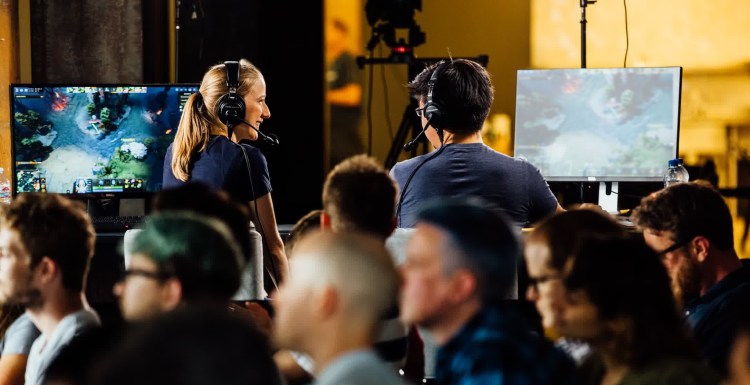Professional athletes are no strangers to the power of artificial intelligence. Whether it’s the computer vision tools that help pitchers perfect their delivery or the machine learning platform that predicts when soccer players are at risk of injury, AI is empowering athletes to achieve previously unthinkable levels of performance.
But what about professional video gamers? While spectator gaming events are not yet quite as popular as professional football or soccer, the esports industry is expected to generate $1.65 billion in U.S. revenues by 2020. With so much money at stake in one of the fastest-growing parts of the media landscape, it’s only natural that elite gamers are looking for an edge wherever they can find one.
Increasingly, this means that gamers are turning to state-of-the-art AI technology for in-depth gameplay analysis, granular predictions and personalized recommendations — just like their pro sports peers.
AI machines are predicting — and delivering — results
If you wanted to understand what AI tools have to offer when it comes to improving gaming performance, you’d only have to look at how AI bots have fared when pitted against human players.
June 5th: The AI Audit in NYC
Join us next week in NYC to engage with top executive leaders, delving into strategies for auditing AI models to ensure fairness, optimal performance, and ethical compliance across diverse organizations. Secure your attendance for this exclusive invite-only event.
OpenAI, a non-profit AI research organization co-founded by Elon Musk, created bots that were competitive with top human players in the MOBA Dota 2. Though the bots lost, they maintained a strong chance of winning through the first 20 minutes-to-35 minutes of both games. If the development of OpenAI’s software is anything like that of chess computers like Deep Blue, it won’t be long before it’s capable of toppling world champions.
Meanwhile, other AI tools are predicting game outcomes, allowing players to see how different strategies might have changed the game’s ultimate result. The 2016 Esports Analytics Through Encounter Detection paper, published by Lund University, discusses how tracking player and team in-game behaviors through machine learning can predict which team is most likely to take the lead. In Dota 2, the paper concludes, “encounter outcomes can be predicted based on the initial conditions, and the outcome of the encounters can be used to predict match outcomes.”
In effect, these machine learning algorithms give players access to complex data insights on par with the sabermetric tools that major sports teams use to construct their rosters.
AI coaches are succeeding where human coaches struggle
The rise of gaming AI comes at a time when gamers are increasingly hiring human coaches to take their skills to the next level.
Gamer Sensei, a platform that connects players to certified online coaches across major esports titles, has raised more than $6 million since 2016. Through a sophisticated matchmaking algorithm, the company matches players to the coach that best fits their skill level.
But while human coaches can answer detailed questions, they usually don’t have access to detailed statistics or advanced number-crunching tools. And with hourly rates that can run upwards of $150 per hour, human instruction can get expensive rather quickly.
By contrast, AI is capable of providing detailed, personalized insight based on the vast troves of data gamers create as they play. Essentially, these tools take large quantities of information and distill them into actionable adjustments players can make to improve their chances of winning.
The future of AI in gaming is bright
With each passing month, esports commands a larger audience and even greater advertising revenues. For elite gamers, the stakes of high performance will only continue to grow as MOBAs like Dota 2 become more popular with a younger generation that is increasingly comfortable watching other people play video games.
We’re only just scratching the surface of what AI can do to improve the performance of high-end gamers. With developers and gamers each incentivized to develop new, creative solutions for optimizing gameplay, we expect to see more robust, more effective analytical tools in the years to come.
In short, today’s esports players are the smartest, fastest and most effective gamers yet — and they’re only getting smarter.
Olcay Yilmazcoban is co-founder of FalconAI, a VC-backed startup that develops cutting-edge AI algorithms to democratize domain knowledge of human experts.


